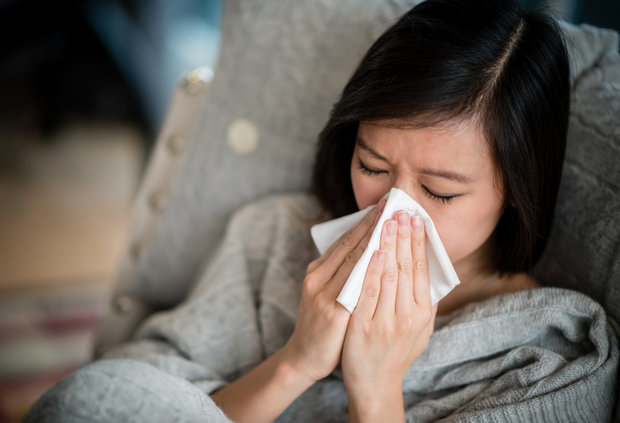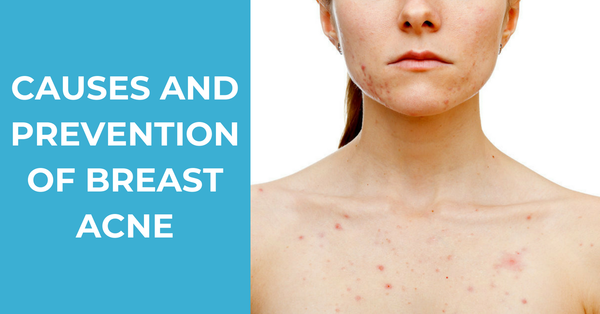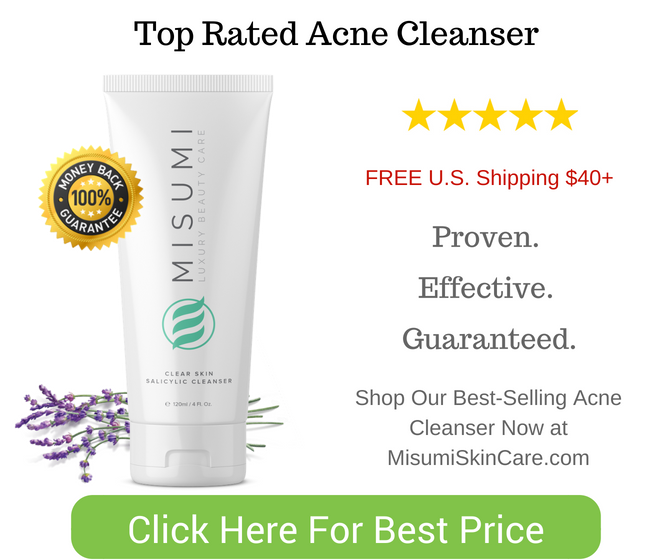Contents
female population of any age – teenagers, young women, adults, etc. While, in the vast majority of cases, it doesn’t represent anything serious, it still causes emotional stress and social disabilities due to discomfort, unpleasant appearance, etc.
Like all other acne, breast acne is primarily caused by clogged pores, excess oil and dead skin cells, but there can be numerous other factors influencing its development. Read on to discover the most likely causes of breast acne and how to avoid them, how to NOT fight breast acne and how to get rid of it for good.
Among the numerous causes of breast acne, most of them are related to things that lead to one of the three main reasons for acne development – clogged pores, excess sebum oil and dead skin cells. Other factors like allergies, genetics, physiological reasons, stress and hormones can also be a cause, yet those are rarer, but also harder to treat. Here are the main reasons for breast acne development:
Active Lifestyle
The breasts and the area between them are one of the most vulnerable and sweaty parts of the woman’s body. When left on the skin to dry, sweat can clog pores and prevent the skin from breathing, creating a favorable environment for acne-causing bacteria to breed.
Leading an active lifestyle makes you more prone to developing breast acne, primarily due to excessive sweating. There is also the prolonged exposure to dirt and polluted air, which can both play a big part in pore clogging and acne development.
Physiological Malfunctions
Breast acne can be caused by a number of physiological disorders, primarily related to kidneys, liver, the digestive system and hormones. Hormonal issues are probably the trickiest to identify, since there are so many hormones influencing the proper functionality of sebaceous glands.
Whenever such conditions occur, the overproduction of oil can lead to acne formation. There are also instances when the hormonal disbalance is considered normal, but can still highly influence acne formation mainly during puberty, pregnancy and menstruation.
Acne can be caused by the malfunction of the liver leading to glandular disorders, which are responsible for regulating the hormones that produce sebum oil, and eventually cause overproduction of oil and acne development.
When kidneys fail to remove toxins from the body, the body requests the assistance of liver and eventually the skin to help detox the blood. This eventually leads to overabundance of the skin and increased production of sebum oil, which causes acne.
Some (even the slightest) disorders of the digestive system can lead to your body being unable to break down food properly, which leads to increased levels of toxins in the body. As we already learned, a high level of toxins can influence acne formation.
Allergies
 Various allergies may lead to acne development on the skin, which is very common for a significant number of people worldwide. The autoimmune system is a very complex thing, and allergic reactions may develop due to anything including the sun, trees, flowers, etc. Luckily, acne caused by allergies can be easily reverted with the help of medication.
Various allergies may lead to acne development on the skin, which is very common for a significant number of people worldwide. The autoimmune system is a very complex thing, and allergic reactions may develop due to anything including the sun, trees, flowers, etc. Luckily, acne caused by allergies can be easily reverted with the help of medication.
Poor Personal Hygiene
Not cleaning the breast area properly and regularly may cause the skin to gather too much environmental dirt, dust, dead skin cells and sweat, which will clog pores and create a favorable environment for bacteria to breed.
Poor Clothing Choices
Synthetic clothing, especially the type that stick to the body tightly, impediments the skin’s ability to breathe and traps sweat, dirt and dead skin cells on top of your skin. This causes excessive irritation and promotes acne development in the breast area. Whenever you can, try wearing loose clothing and cotton-made tops.
Poor Diet
As a general rule, it is highly advisable for people with acne-prone skin to stick to healthy diets. Try to eliminate processed foods, fast foods and dairy products, along with soda, chocolate and various other sweets, and stick to greens, whole foods, fruits and veggies.
Medication
Breast acne can sometimes occur as a side effect of medication. For instance, anti-seizure medication like Dilantin lists acne as a possible side effect. Be wary of side effects and pay attention to this correlation.
Habits to Prevent Breast Acne
Here is a list of very easy steps that will help prevent breast acne:
- Regular washing – Wash the breast area regularly, every morning and evening, with a mild soap or cleanser.
- Keep the sun away – Try minimizing direct sun rays on your breasts with the help of corresponding clothing. Not only it will help with acne, but also decrease the chance of breast cancer.
- Pay attention to oily hair – If you have long hair that reaches your breasts, make sure to keep it clean. Wash your hair twice a week with a corresponding shampoo. In case the washing is not possible for some reason, try to keep it away from your breasts by tying it behind your neck.
- Shower after physical activities – Make a habit to shower immediately after a physical activities like workouts, sports, etc.
- Use oil-free/non-comedogenic sunscreen – Oil-free or non-comedogenic sunscreen will help keep the pores unclogged and allow the skin to breathe properly.
- Pay attention to your diet – Again, the food you eat is very important. Stick to healthy, anti-acne diets to reduce the chance of breakouts.
- DO NOT USE alcohol, harsh soaps, cleansers or other products that dry the skin – Alcohol and harsh ingredients can damage the skin of the breast area.
- DO NOT scrub – Avoid excessive and hard scrubbing to avoid inflicting damage to the skin.
- DO NOT stay in sweaty clothing – Make sure to change your clothes as soon as you’re sweating. This concerns not only workouts and sports, but also regular, hot, summer days.
- DO NOT pop, squeeze or pick at pimples – Apart from making the zits look even worse, there is a high chance of scarring and the breast area is the second-last place you want to have a scar on.
In most cases, closely following the above-mentioned habits and hygiene steps will be enough to clear breast acne, given the case that it’s not caused by allergies, physiological conditions, hormones, etc.
In case the acne doesn’t go away on its own, here are a few things you could try at home:
- Tea tree oil – Tea tree oil has great acne-combating properties, and it also soothes and calms the skin very well. You can use it both as a gel, wash or a mask.
- OTC gels and creams – powerful active ingredients (benzoyl peroxide and salicylic acid) containing products may help reduce the appearance of acne. Be careful with the concentration of those ingredients though: the breast area is very tender and you may end up damaging it if you’re not careful.
- Mud/charcoal masks – Gently rub this mask on the affected area twice per week and rinse off.
- Clay masks – Clay-based products like Lerosett Organic Acne Treatment Mask have the ability to extract the impurities from within the skin when applied to the affected area. Apply the mask for 10-15 minutes and rinse off.
- Aspirin paste – Aspirin contains salicylic acid and when combined with honey, it can provide gentle, yet effective exfoliation. Carefully crush 2 Aspirin tablets and mix well with 1 teaspoon of honey, preferably Manuka honey, and 1 teaspoon of water. Apply to affected area for 10 minutes and rinse off.
Breast acne can be highly irritating, stressful and socially impairing. The good thing is that, more often than not, it is caused by one (or a combination) of the above-mentioned poor habits, and can be dealt with easily. Follow our tips and you’ll notice significant improvements very soon.
In case there is a hormonal or physiological issue, or if the acne doesn’t go away, make absolutely sure to consult a physician as fast as you can. Physiological issues are easier to solve at earlier stages, and there is always the risk that the infection you’re mistakenly taking for acne is a more serious condition like candidiasis, mastitis, cellulitis, breast cancer, etc. Regardless of the condition, it’s much easier to treat at earlier stages.
Have you had breast acne before? What were the reasons? What did you do to get rid of it? How long did it take you to clear the breast area from acne? Share your experience with all of us in the comments!



